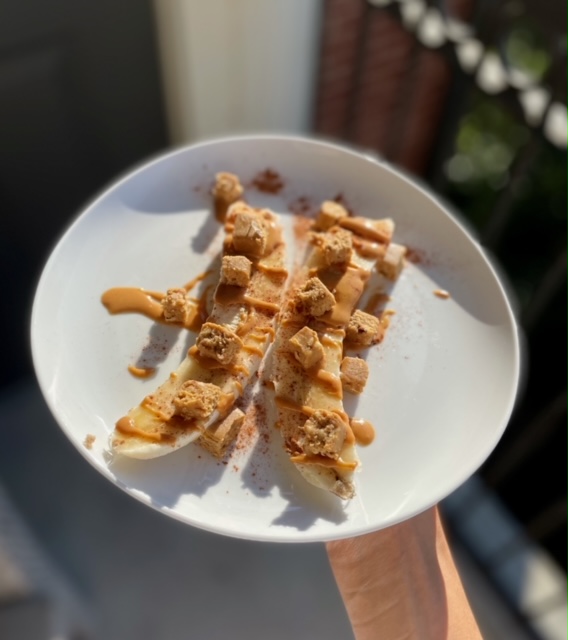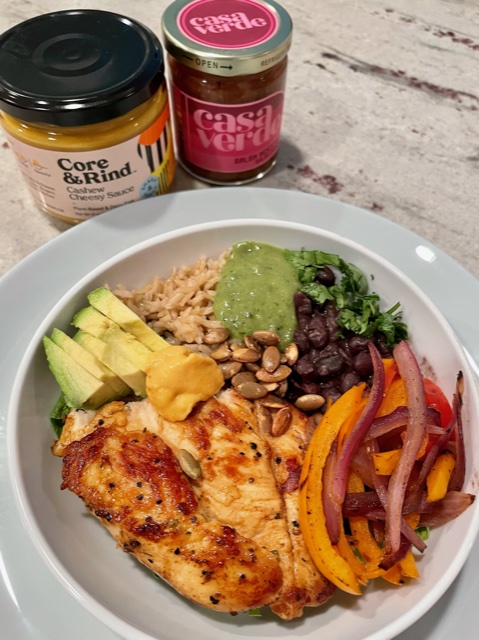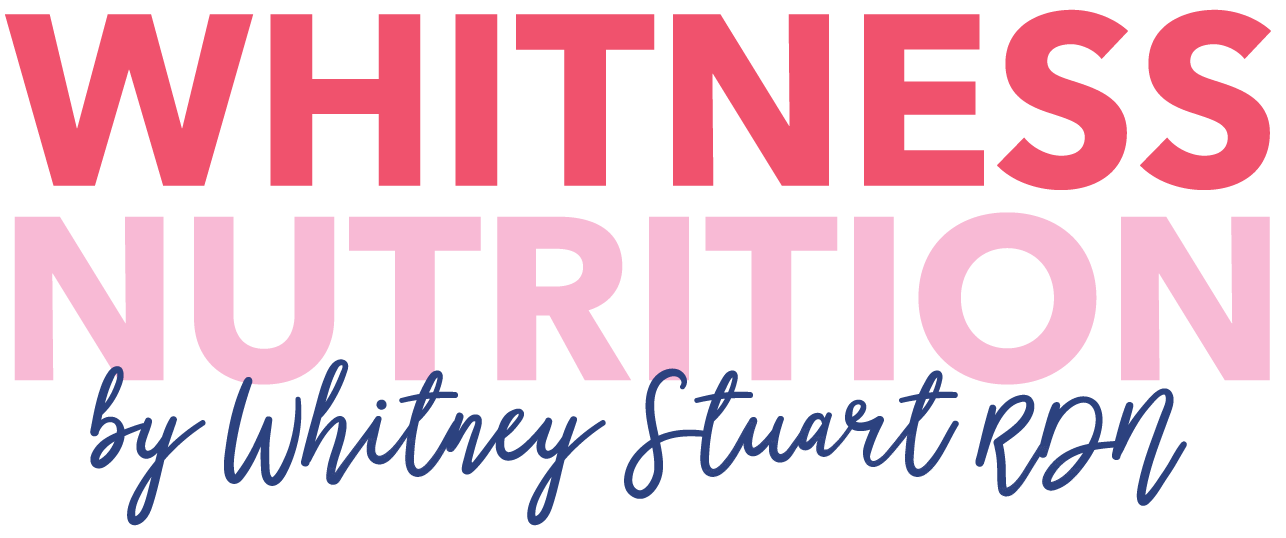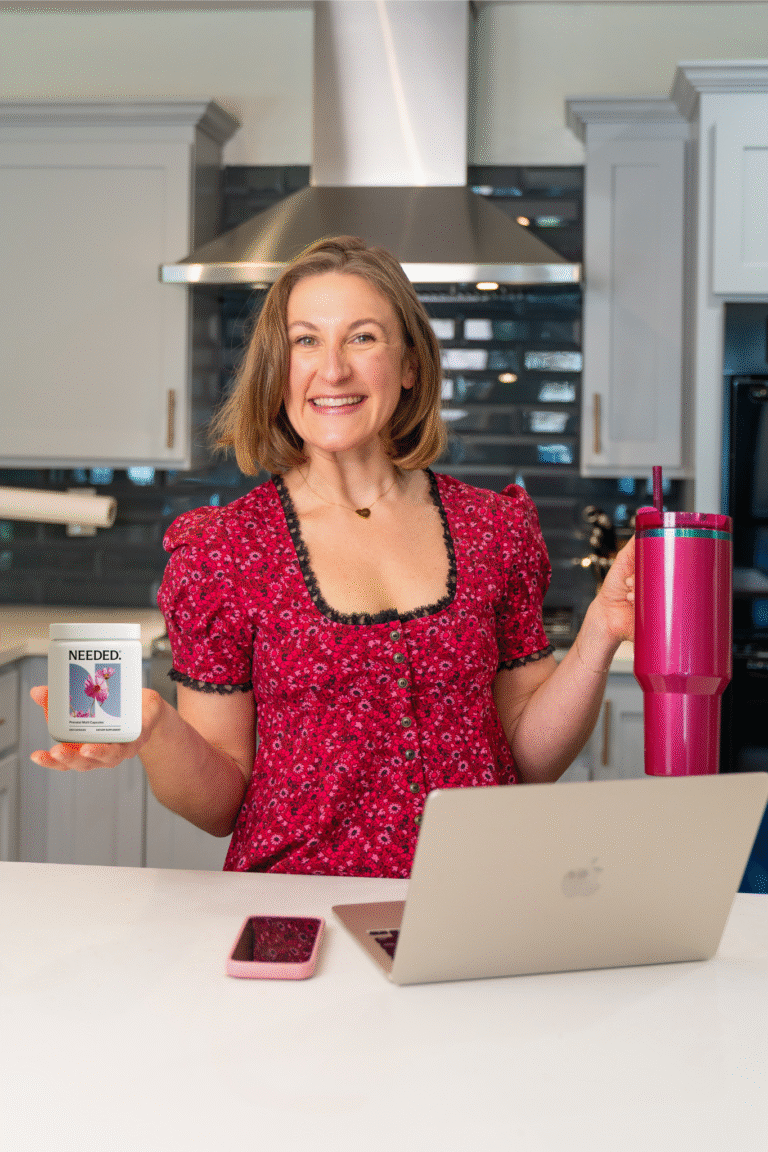5 Nutrition Interventions for Blood Sugar Regulation
After 5 years as a dietitian, I get really frustrated seeing some of the recommendations, or lack thereof, given to my patients after they have struggled with a diabetes diagnosis or months, years, decades, without improvement. The current conventional health system sticks on a Metformin band-aid and calls it a day until insulin is needed. Disgusting.
First, blood sugar regulation is not just for diabetes. Why?
34.2 million Americans—just over 1 in 10—have diabetes. 1 in 3—have pre-diabetes.
Prevention starts now! Plus, optimal blood sugar levels feel really good for EVERYONE.This fosters stable energy, fat loss, minimal cravings & more brain space for creativity! Eating the right amount of vegetable fiber, protein and fat at each meal can help you naturally stabilize blood sugar, burn fat, avoid pushing the “insulin resistance button” and experience stable energy. So, here are my top recommendations, based on what I think is pertinent, possible and evidence-based. Remember, I see 40 patients with diabetes a week. This isn’t my first rodeo.
Implement these 5 tools on a daily basis to optimize blood sugar and feel best.
-
No lonely carbs
 Yes, you can eat carbohydrates. But, they digest quickly and become the main agent of elevated blood sugar, or hyperglycemia. But, there’s a work around!
Yes, you can eat carbohydrates. But, they digest quickly and become the main agent of elevated blood sugar, or hyperglycemia. But, there’s a work around! -
Fat & Fiber
Does your 3PM healthy apple snack leave you feeling depleted of energy by 4PM? That carb is a quick fuel; it doesn’t have lasting benefit! Pair your snack to get more bang for your buck. My favorite combos include either veg + fat or fruit + fat.
-
Protein is key
Protein is really the most powerful way to feel both stomach-full and brain-full. It is king in providing satiety. Easy options to increase protein include:
- hard boiled eggs
- roasted pumpkin seeds

- meat sticks and jerky
- collagen peptides
- greek yogurt
- raw cheese
- organic whey protein
-
Consider the carbohydrate continuum
The beauty of balancing carbohydrates, if that you don’t have to eliminate specific food groups! There is so much freedom in that! But, I would be lying if I were to say “eat whatever carbs you want, whenever you want” because some really stand out as nourishing nutrient-rich rock stars. Most of the time, I like my patients to consume the carb + nutrient type versions which include seasonal fruit, starchy vegetables and legumes. These take precedence over processed sugar, refined grains and concentrated sugar and sauces. I.E. Sweet potatoes and maple syrup both raise blood sugar but I get more volume per calorie and more nutrient-load, along with more fiber and anti-oxidants, from the sweet potato. Focusing on whole foods also naturally keeps you more full with a greater prevalence of roughage volume in your stomach cavity.

Hydration matters
Do not, do not, drink your calories. Do not drink sugar-filled electrolytes either. And you don’t need glucose for re-hydration. Like, LiquidIV. Electrolytes and minerals are enough. Falling short on fluids can lead to hyperglycemia, as the sugar in your blood circulation becomes more concentrated. Dehydration causes your liver to produce blood sugar thanks to the hormone vasopressin which kidneys to retain water. This signals the liver to replenish your energy stores! Over time, this leads to insulin resistance.Keep blood volume increased with adequate hydration and electrolyte replenishment from any physical activity and humid living conditions:
- NUUN
- Lyteline
- CrucialFour – I mix lime juice, sparkling water and Icelandic flake salt
- LMNT
-
Eat for purpose, allow your body to break a fast.
In the 1960’s classic meal times were 8AM, 12PM, 5PM. There was a large gap between dinner and breakfast. This overnight fast allowed the body to rest and digest, have good sleep and the rates of insulin resistance were ironically quite low. Now, it’s rare for my patients to fast 12 hours overnight. Bring back the 1960’s style fast. Circadian, or night-light fasting, as I like to refer to it. When it’s light out and you’re moving, eat. When it’s dark and you’re not, don’t. This may look like 8-6P, or 9-5PM, or 10-8. Each person’s energy needs and schedule is unique. But, don’t stuff your face before bed. It will wreck your sleep and insulin resistance too.


